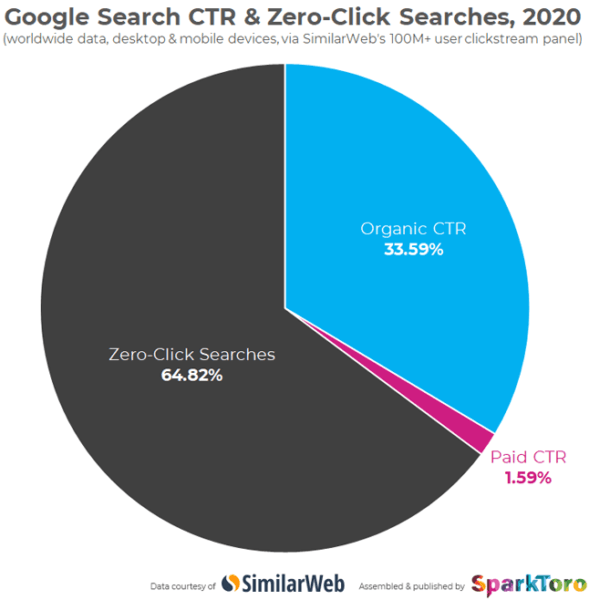As the digital landscape continues to evolve at a rapid pace, so does the world of Search Engine Optimization (SEO). As a freelance SEO specialist, I’ve seen firsthand how SEO has transformed from a keyword-centric approach to a more user-focused and comprehensive strategy.
Looking ahead, several emerging trends and predictions are shaping the future of SEO. In this article, we will explore these trends and their potential impact on the SEO landscape.
1. Voice Search and Conversational SEO:
The rise of voice-activated devices and virtual assistants has changed the way people search for information online. Voice search is becoming increasingly popular due to its convenience and ease of use. As a result, SEO will need to adapt to accommodate natural language and conversational queries. Long-tail keywords and content structured in a question-and-answer format will become more prevalent to cater to voice search queries effectively.
2. Artificial Intelligence (AI) and Machine Learning:
AI and machine learning are already playing a significant role in shaping search engine algorithms and delivering more relevant search results. Search engines like Google are leveraging AI to understand user intent better and provide personalized results. As AI continues to advance, SEO strategies will need to focus on optimizing for user experience, relevance, and context rather than just keyword density and backlinks.
3. Featured Snippets and Zero-Click Searches:
Featured snippets are becoming increasingly prominent in search engine results pages (SERPs). These snippets provide users with concise answers to their queries directly on the search page, reducing the need for them to click through to a website.

As a result, there has been a rise in zero-click searches, where users find the information they need without leaving the search engine. SEO efforts will need to target featured snippet opportunities to increase visibility and drive traffic to websites.
4. Mobile-First Indexing:
With the majority of internet users accessing the web through mobile devices, search engines are prioritizing mobile-first indexing. This means that the mobile version of a website is now the primary version considered for ranking and indexing. Websites that are not mobile-friendly risk lower rankings and reduced visibility in search results. In the future, mobile optimization will continue to be a crucial factor in SEO success.
5. User Experience (UX) and Core Web Vitals:
User experience is becoming an essential factor in search engine rankings. Google’s Core Web Vitals, which measure page loading speed, interactivity, and visual stability, will play a significant role in determining how well a website performs in search results. Websites that provide a seamless and user-friendly experience will have an advantage in search rankings, highlighting the need for ongoing technical optimizations.
6. E-A-T and Expertise in SEO:
Expertise, Authoritativeness, and Trustworthiness (E-A-T) have been critical considerations in Google’s search quality guidelines. Websites with high E-A-T are more likely to rank well in search results. As SEO progresses, establishing and demonstrating expertise in a specific niche or industry will be essential for gaining visibility and credibility.
7. Video and Visual Search Optimization:
Visual content, particularly video, is gaining popularity as an engaging and informative medium. Video content optimization will become crucial for SEO, with attention to metadata, transcripts, and video sitemaps. Additionally, visual search, which allows users to search using images, is expected to grow in importance. Optimizing images and using structured data to provide context will be vital for visual search success.
8. Local SEO and Hyper-Local Targeting:
Local SEO will continue to be a crucial aspect of digital marketing, especially for businesses serving specific geographic areas. Hyper-local targeting, using geolocation and location-based keywords, will become more significant as users seek results tailored to their immediate surroundings. Startups and small businesses can gain a competitive advantage by focusing on local SEO strategies to attract nearby customers.
9. Data Privacy and SEO:
With growing concerns over data privacy, search engines are emphasizing the security and privacy of websites. SSL certificates and HTTPS encryption have become standard requirements for websites. In the future, user privacy and data protection will continue to influence SEO practices, with search engines rewarding secure and trustworthy websites.
Conclusion:
The future of SEO is shaped by emerging trends and rapid technological advancements. Voice search, artificial intelligence, featured snippets, mobile-first indexing, and user experience will be critical factors in determining search engine rankings. As SEO evolves, the focus will shift from traditional keyword-centric approaches to a more holistic and user-focused strategy.
To stay ahead in the competitive digital landscape, businesses and website owners must embrace these emerging trends and adapt their SEO practices accordingly. By providing valuable, relevant, and user-friendly content, optimizing for voice search and mobile devices, and embracing visual content, websites can position themselves for long-term success in the ever-changing world of SEO. Furthermore, a strong emphasis on E-A-T, local SEO, data privacy, and staying up-to-date with the latest algorithm changes will be essential for businesses aiming to compete effectively and thrive in the future SEO landscape.